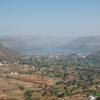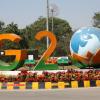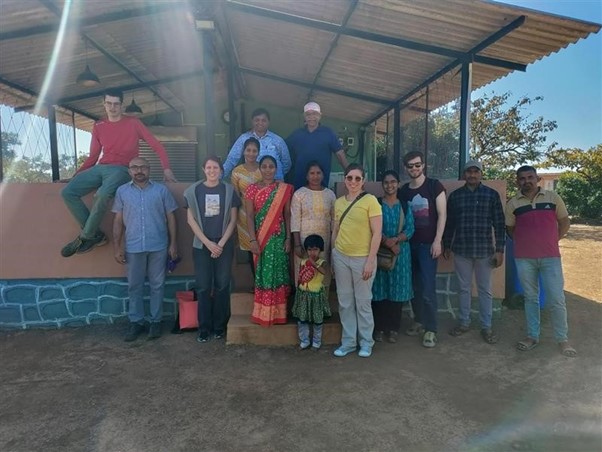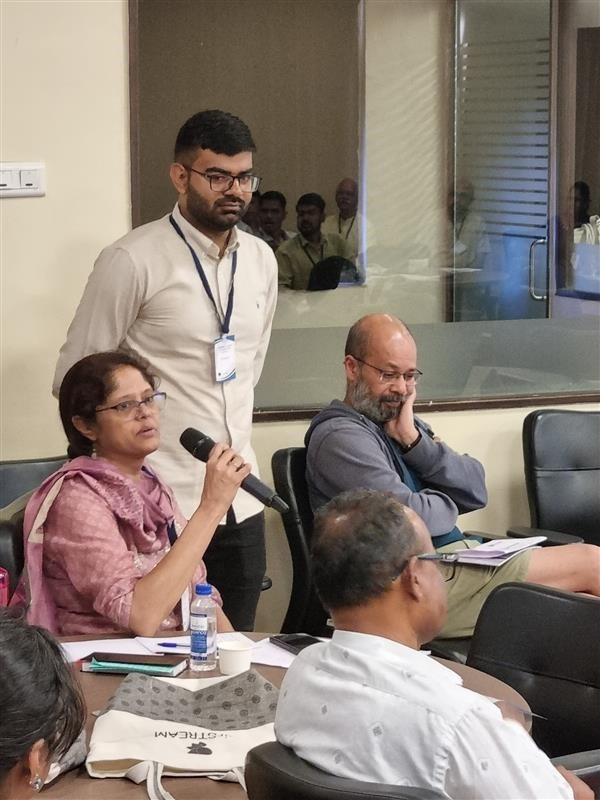
On the 6-7th February 2024, the second workshop of fairSTREAM project was hosted at IISER in Pune, India, bringing together food, water and biodiversity stakeholders from the Upper Bhima Basin.
This exercise has been informed by modelling efforts of IIASA's BEC and WAT teams (under the lead of Elisa Stefaniak and Jens de Bruijn respectively), which aim to integrate stakeholder decisions into an agent-based model (GEB), fully integrated with hydrological model (CWatM) and an eco-evolutionary vegetation model (plantFATE). The model showed that without intervention, climate change will lead to dropping groundwater tables and the degradation of forests. As such, increased adaptation efforts are required in the future, placing additional pressure on farmer incomes.
The workshop further highlighted various key nexus issues raised by stakeholders across the Upper Bhima Basin. For example, farmers in the upper stretches of the Basin rely on non-timber forest products, including medicinal plants to sustain local livelihoods. Additionally, these driest parts of the Basin solely rely on rainfed agriculture and therefore cannot plant water-intensive crops, exemplifying a key trade-off between food and water. These issues alongside other were also highlighted in a Situational Analysis, recently published both in English and the local language, Mahrati. During a field visit following the workshop, we consulted farmers representatives on food water and biodiversity measures that they would value for the future.
The stakeholder inputs and feedback we gathered are the basis for co-developed storylines for food, water and biodiversity. For example, in one storyline the project will explore a just distribution of water for farmers across the Upper Bhima Basin and its cross-sectoral implications. This per-capita allocation of minimum amount of water per year has long been an ambition supported by grassroots activists in the region. A final workshop will be held in November 2024, where we will present the modelled outcomes of the storylines alongside further opportunities for supporting sustainable development at the food-water-biodiversity nexus in the region.
Publication
Kanade, R., Lohakare, K., Bhadbhade, N., Joy, K.J., Thomas, B.K., Martin, J. , & Willaarts, B. (2023). Situational Analysis of the Upper Bhima sub-basin in the context of the Water-Food-Biodiversity Nexus. Zenodo 10.5281/zenodo.8255959.
fairSTREAM
The fairSTREAM project aims to address the sometimes-conflicting views on procedural and outcome fairness related to many food-water-biodiversity nexus issues. To this end, IIASA researchers from Equity and Justice (EQU), Water Security (WAT), and Biodiversity, Ecology, and Conservation (BEC) are aligning their expertise in co-designing participatory processes with those in quantitative modelling.
News

29 November 2023
Embracing ecological perspectives, tools, and models to navigate the digital economy

29 November 2023
Integrating Sustainability as a New Dimension for Competition Policy

06 November 2023





